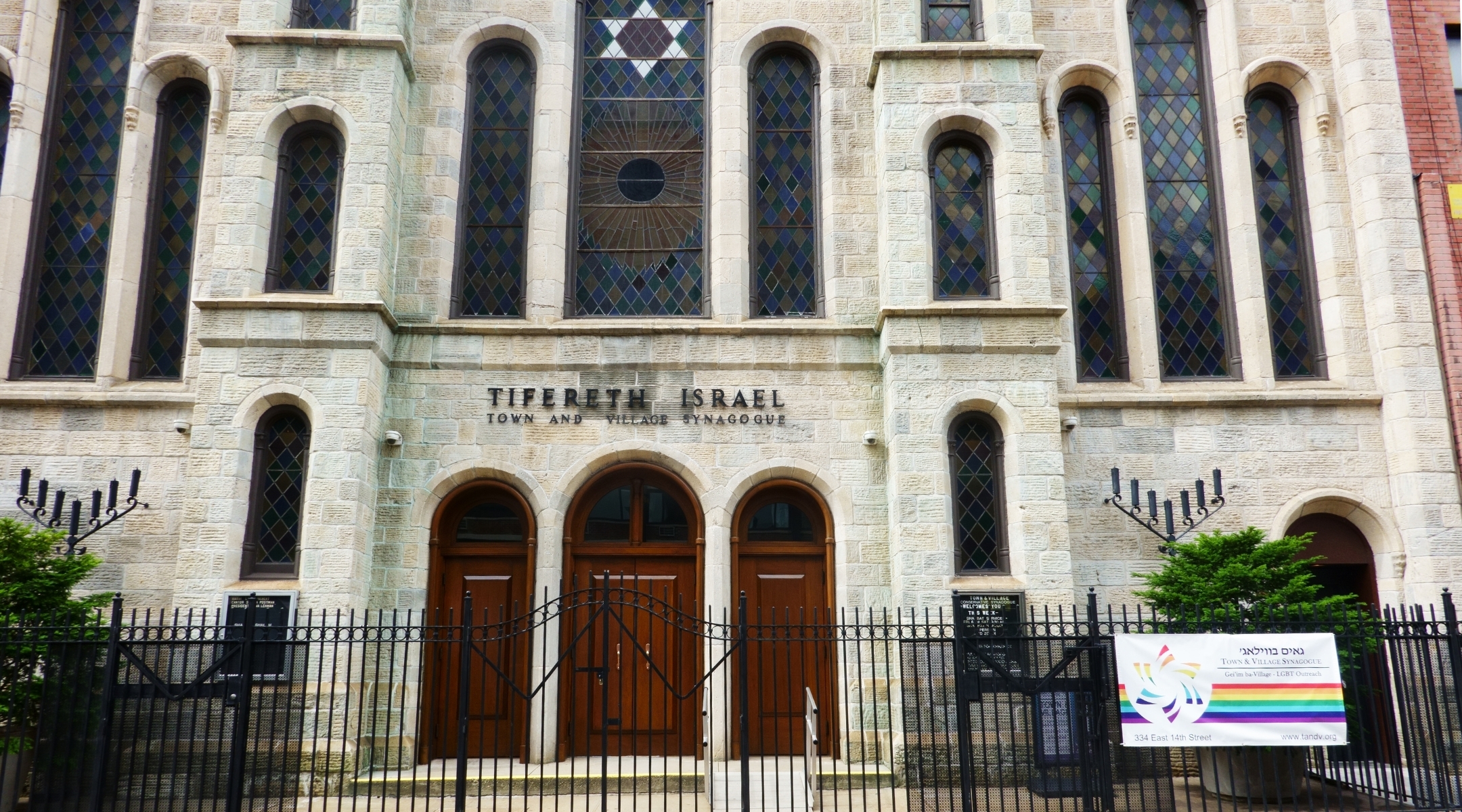Shortly after 6 p.m. on Friday, as the members of Town and Village Synagogue welcomed Yom Kippur by gathering for the Kol Nidre service, an anonymous man called with a message: Five bombs had been placed at the Conservative congregation in downtown Manhattan.
Immediately after the call came in, the synagogue security guard alerted both floors of the building on East 14th Street, prompting 400 congregants at two separate services to file out of the pews and exit the building en masse, reconvening on the sidewalk outside while police swept the building.
In an email to the synagogue choir sent Monday afternoon, Cantor Shayna Postman wrote that she initially thought someone had fainted when she saw people moving at the back of the sanctuary. She quickly realized what was happening.
“Everyone was so calm and quiet, and now people were starting to walk out of the sanctuary,” Postman wrote. “Needless to say, I was concerned.”
Hundreds of synagogues across the country have received similar bomb threats over the past year. But for Town and Village, it was a jarring interruption to what is, globally, perhaps the most well known and well attended prayer service of the Jewish year — often experienced as a slow, meditative moment at the onset of the Day of Atonement.
For some congregants, the experience, coming at an anxious time for Jews in New York City and beyond, confirmed that the antisemitism they already feared was making an appearance in their lives.
“I told Bill to not put his yarmulke on until we get inside the synagogue,” said Cheryl Gross, who attended the service, referring to her husband. “We didn’t used to worry about that. But we do now.”
What happened after the evacuation, attendees said, was inspiring: Standing together, the congregants kept praying together — and finished the Kol Nidre prayer on the sidewalk.
“Cantor Postman, who hadn’t finished all three times of ‘Kol Nidre,’ finished it on the street with choirs surrounding her,” recalled Beth Mann, a past president of Town and Village Synagogue who was at the synagogue Friday. “Rabbi [Abby] Sosland and I started singing ‘Oseh Shalom’ and other songs, and people just joyously started singing in the street. And anyone who passed by — it’s a Friday night, New York City — they just stood and admired what was going on and asked what happened.”
Congregants finished that part of the service without their machzors, or High Holiday prayer books, Gross said. “I don’t think we had time to think about it too much,” her husband Bill added.
But enough people in the crowd had that part of the service memorized that they were able to continue without the words in front of them. “We gathered outside on the street, and we actually began singing,” Mann said.
The NYPD’s Emergency Services Unit examined the synagogue’s premises, “yielding negative results,” a statement from a police spokesperson said. In other words, like most if not all of the bomb threats called into U.S. synagogues recently, it was a hoax.
“No injuries were reported as a result of this incident,” the NYPD statement said. “There are no arrests and the investigation remains ongoing.” The report classified the incident as “aggravated harassment.”
Following the sweep, congregants and guests headed back inside, where they were able to complete their Yom Kippur evening services.
“We were undeterred from celebrating the holiday, from making it meaningful for everyone,” Mann said. “We just reacted the way we always do: with determination, with love, with peace and with song.”
She added, “If there’s a silver lining, it’s that it made our prayers and our kavana, our intentionality — it deepened our intentionality. And I think people need that.”
The New York Jewish Week brings you the stories behind the headlines, keeping you connected to Jewish life in New York. Help sustain the reporting you trust by donating today.





